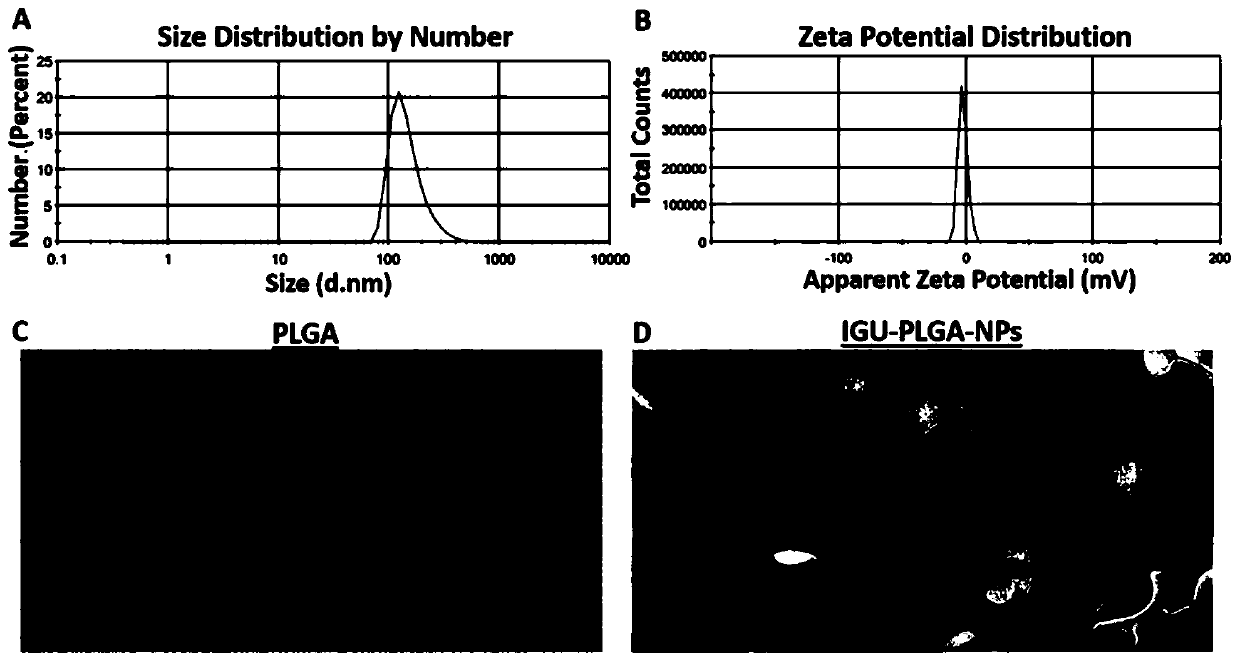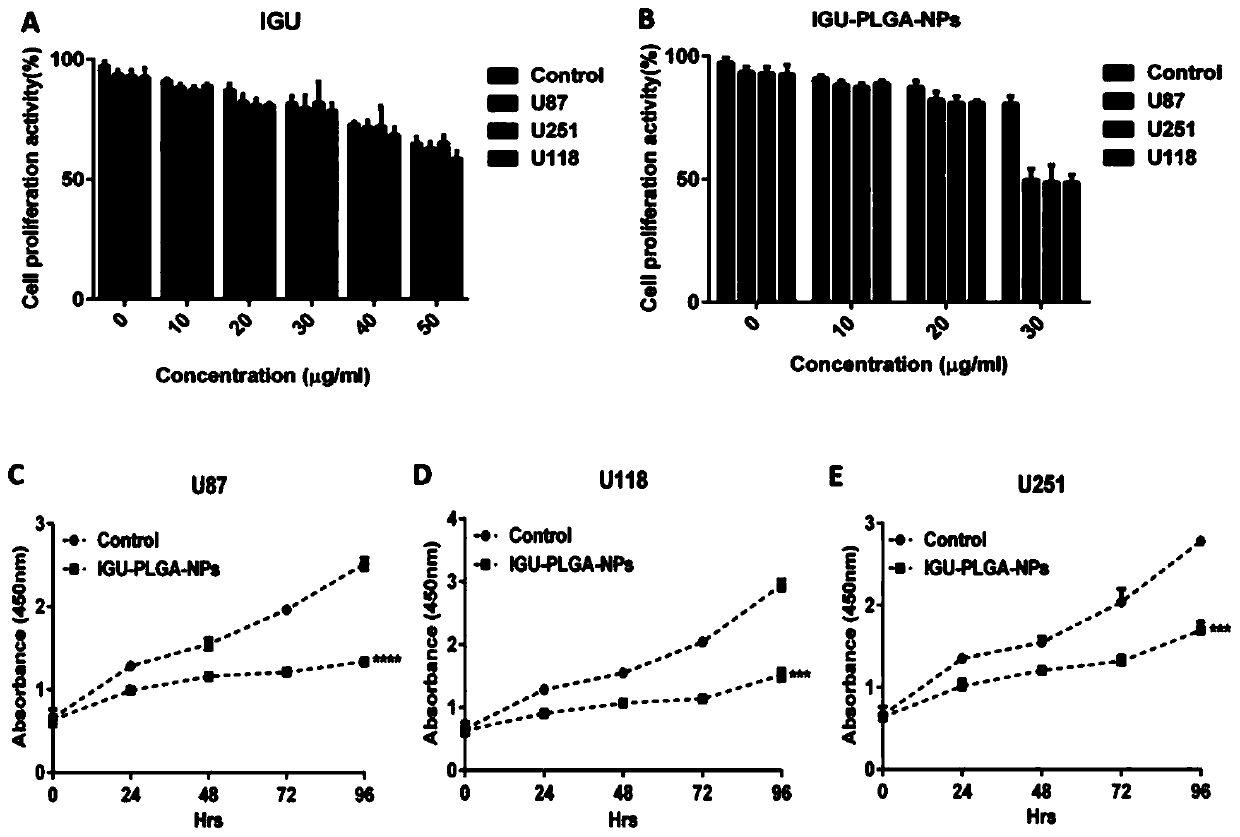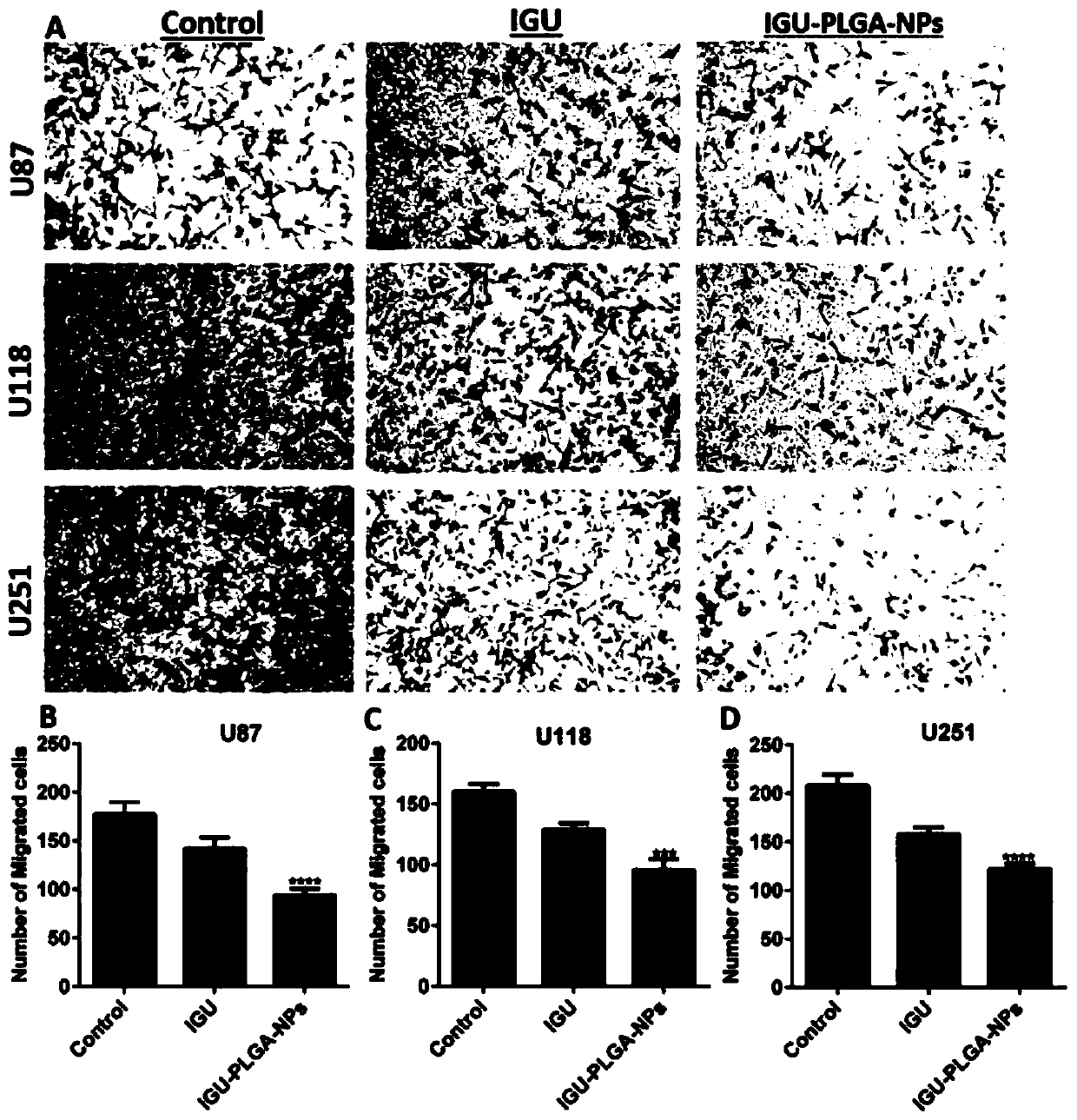IGU-PLGA-NPs (nanoparticles) and preparation method and application thereof
A nanoparticle and emulsion technology, applied in nanotechnology, nanotechnology, nanomedicine, etc., can solve the problems of brain difficulties, poor clinical results, low survival rate, etc., and achieve the effect of improving release efficiency.
- Summary
- Abstract
- Description
- Claims
- Application Information
AI Technical Summary
Problems solved by technology
Method used
Image
Examples
Embodiment 1
[0036] Preparation method of IGU-PLGA-NPs nanoparticles
[0037] Dissolve 100 mg of PLGA in 5 ml of dichloromethane solution, and add 200 μL of 30 μg / mL IGU aqueous solution. The mixture was sonicated to form an emulsion using probe sonication (MicrosonXL 2000, Misonix Inc., Farmingdale, NY) at 20 kHz and 30% amplitude. The emulsion was rapidly mixed with 5 ml of 4% PVA (polyvinyl alcohol solution) and homogenized at 6000 rpm for 30 min. Then 5ml of deionized water was added, stirred at room temperature overnight, and then centrifuged at 17000rpm for 15min to collect nanoparticles (NPs). The PVA in the NPs was washed three times with double distilled water, EDC (1-ethyl-3-(3-dimethylaminopropyl) carbodiimide hydrochloride), NHS (N-hydroxy-succinyl amine; Sigma) and PEI (polyethyleneimine) activation, incubated at 20°C for 2h, washed twice with deionized water, and stored at 4°C for further use.
[0038] Characterization of IGU-PLGA-NPs
[0039] The morphology of PLGA and I...
PUM
| Property | Measurement | Unit |
|---|---|---|
| Diameter | aaaaa | aaaaa |
Abstract
Description
Claims
Application Information
 Login to View More
Login to View More - R&D
- Intellectual Property
- Life Sciences
- Materials
- Tech Scout
- Unparalleled Data Quality
- Higher Quality Content
- 60% Fewer Hallucinations
Browse by: Latest US Patents, China's latest patents, Technical Efficacy Thesaurus, Application Domain, Technology Topic, Popular Technical Reports.
© 2025 PatSnap. All rights reserved.Legal|Privacy policy|Modern Slavery Act Transparency Statement|Sitemap|About US| Contact US: help@patsnap.com



